Skies Aflame
The cost to take down a dystopian system is great
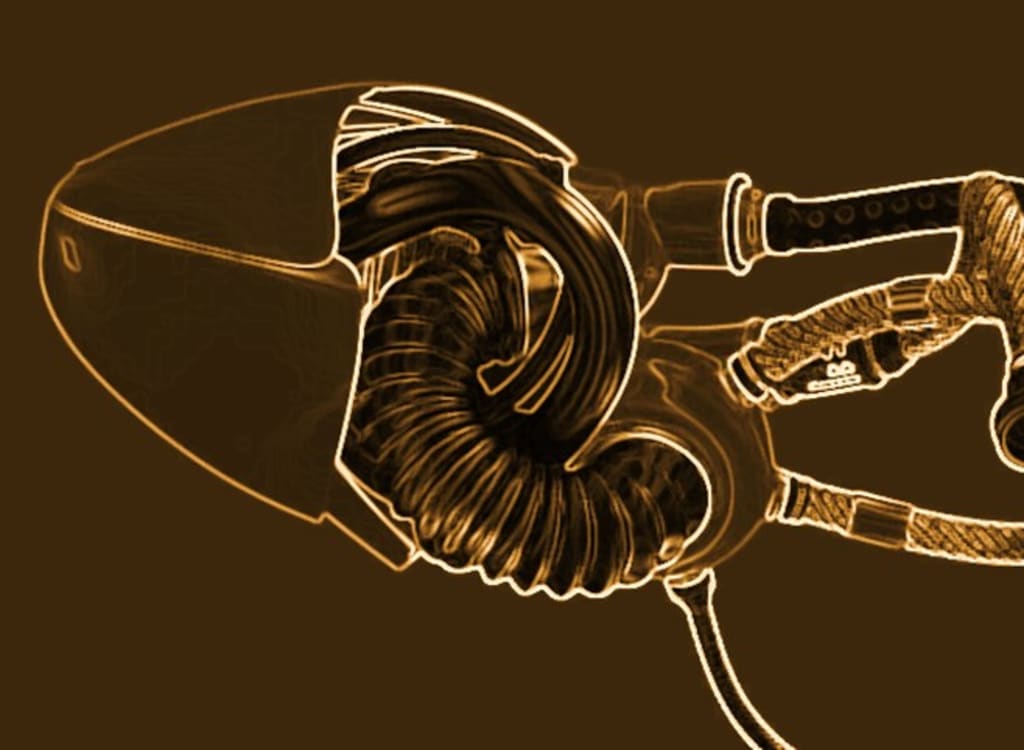
Bacon. I smelled bacon - could hear it sizzling next to my ear. The City always stank of rotting garbage and smoke. This new sweet aroma roused me from my coma, only for me to realize I was the one sizzling on a corroded highway sign.
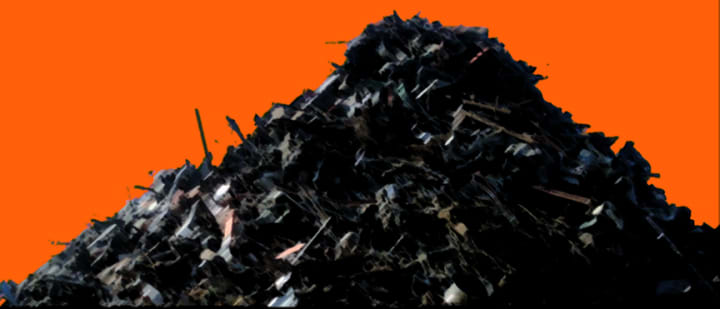
The stacks of broken metal beams and shattered cardboard suggested that I had been thrown into the outer City scrap yard - intact, no less. Even my titanium prosthetic hand and hydraulic-hybrid leg had been left untouched, and my tattered grey jumpsuit still hung onto my chassis by threads and cords.
I opened my chest piece and pulled apart the scarring viscera. I hoped against hope that they had left my bionic organs. I spotted the left side of my HartLocketTM, a filtering mechanism with SigmaTM pores and a reserve of original stem cells that healed the cancer raging inside my body. The right side was my heart, pumping rhythmically into the dark catheters to my lungs. Whoever scrapped me missed my only irreplaceable part.
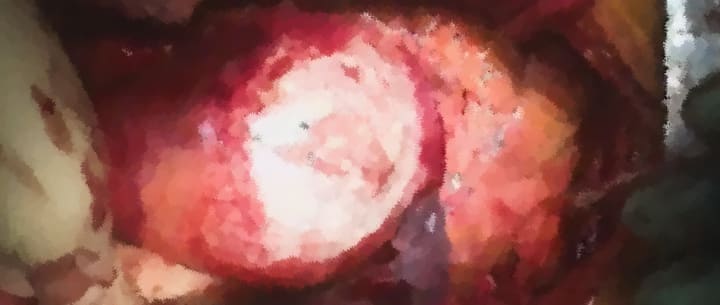
I pushed against the sign and checked the damage to my skin. I had been baking for days judging from the burns, but I was outside of the City Walls. My friends, Sparrow and Kat, had been counting on me to pass off as dead so I could sneak through the Walls undetected. We never stood a chance of going through the gates - only delegates, ambassadors, and the Mayor himself could ever leave through the gates. The scrap yard had been the perfect plan, but I had almost actually died. My heart had taken too long to restart, and now Sparrow and Kat were likely rotting in prison.
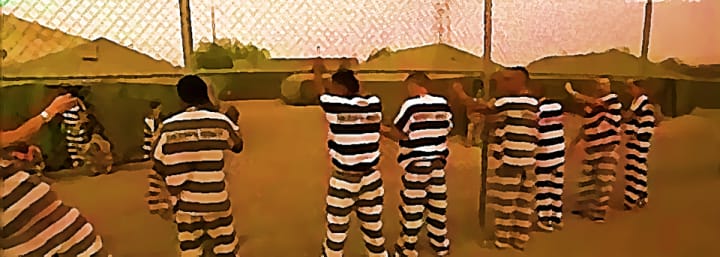
I tried to shake that thought out of my head, but I wondered - were they alive? My friends were city scum, scrawny and anemic. Would they survive long in prison? Prison guards routinely acted as judge, jury, and executioner as they tortured anyone they could touch. I had to save them, but I had to finish our mission lest they die in vain.
I rode the sign like a sled down the scrap hill and clambered over more heaps of broken hoverbikes, flaking pipes, and glass. I had to be careful; some of the old girders still had unreacted thermite embedded, and the cement had been hybridized with power grids. Either one could blow my limb offs or short my pacemaker.
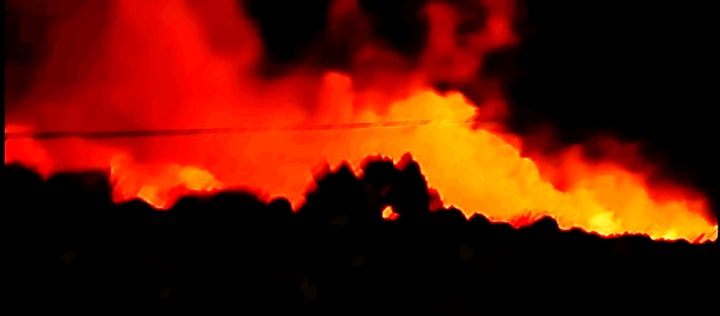
Outside the heaps, I stood at the edge of the irradiated desert. The yellows of distant fires interrupted the orange haze that smothered the world from endless radioactive fires. Abandoned power lines still set new blazes over any new growth in the old world. I clung to the shadows from the Wall and listened for the hum of armed drones. I had little cover, but SecFor rarely wasted resources looking for escapees dying in the wasteland.

I jinxed myself. Just as I left the shadow of a boulder, I heard the hum of a bee from hell - a drone buzzing in the haze. I froze, but it was closing the distance between us. I pressed against the boulder and listened as the drone rose higher. My only chance was to hope this old stone had fallen off the wall with some channels running through it. I pressed my left hand against the top and felt for a spark. My entire left arm was prosthetic, a result of cancer raging through my bones that had to be stopped. The pacemaker in my synthetic heart could generate currents with my biotics, so if that drone was close enough-
It popped like a firecracker and fell to the dusty ground. I looked around the stone and spotted its scrap. The current I had generated must have arced from the circuit to the drone. I was lucky.
SecFor had called me Sasquatch. My pacemaker mixed with my unique set of bionics and interfered with digital recordings near me, so every photo from every closed circuit featured a blurry black image of something or someone stealing premade donuts or colas from the stores. SecFor never bothered to update to more resilient cameras, so I had never been recorded. I could also interfere with naked or unprotected currents like those found in that particular drone.
Just before sunset, I found an iron plate opposite the Northeast merge. Kat had estimated that it would weigh 150 kilos, but it had corroded over time. I opened my shoulder and engaged the hydraulics in my arm to help lift. This usually dehydrated me, but in the sunbaked wasteland, I already felt as dry as the dust between my toes. The plate groaned before yielding, and I descended.
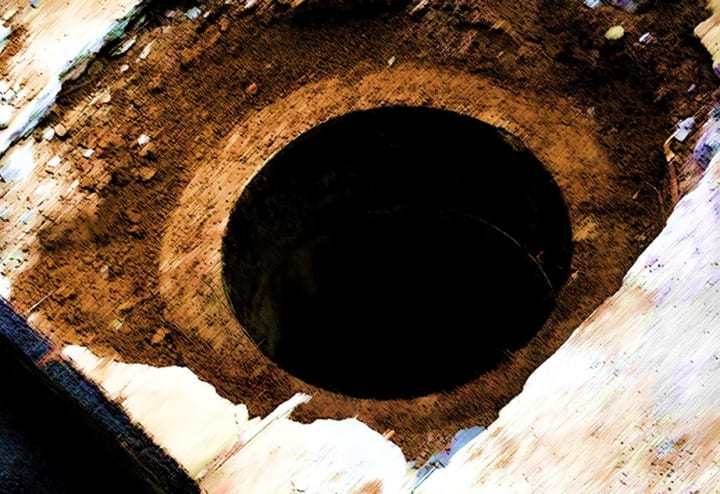
Below the plate was an oasis of humid darkness. They were the lead pipes that had served as the water system centuries before. The water was only an inch-deep in the middle, but it felt like the ocean to me. I planted myself face-first in the stream and sucked a mouthful down. The water seeped into my skin and burned deliciously. I let myself heal for a moment before trying to orient myself.
I needed to save my friends, but I also needed to finish what we had started. Our plan had been to fry the city’s mainframe, crippling all of the Security Forces, the transaction network, and the power lines that kept frying the wilderness. Sparrow and Kat would attack from the dilapidated cross sections within the city’s poorest regions, but I needed to destroy the backups located outside the city. Only once I started walking through the City’s skeletal system did I realize how enormous the task truly was.

The pipes intersected and broke above where the subterranean highways intersected. I twisted open the maintenance door and found one of the waypoints, where the security systems crossed along the walls with the transportation reads. With some of the lead-tainted water as a conduit, frying the waypoint was a cinch. I burned the entire line for miles to ensure SecFor would never know the origin of the collapse.
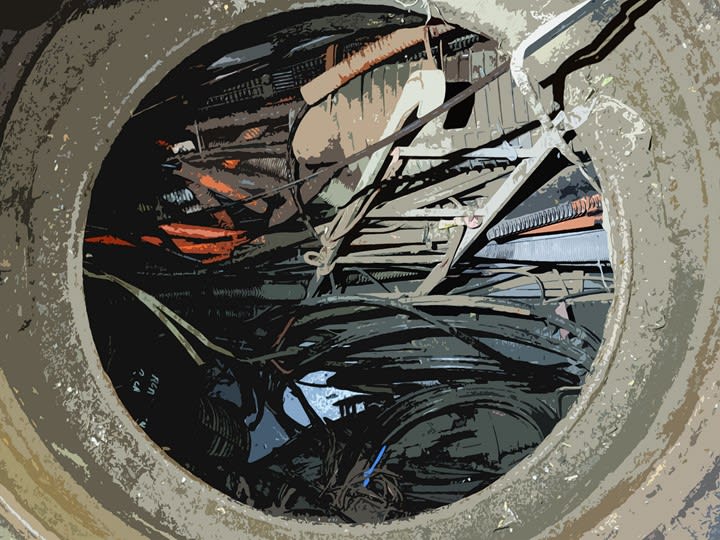
For the entire night, I repeated the process: intersect, fry, patch. Some of the old lines had been patched so often and tethered so far out that I barely had to touch them to fry the entire frame. Only once I had cleared the sector did I hear sirens and commands over the loudspeakers: All citizens must return home. I repeat, clear the streets immediately.
I ran through the pipes for the next sector. The damage was absolute; they would need to lay entirely new wire bundles to restore the network. Those wires ran through the buildings and in the city’s foundation. Centralized banks depended on these cables to run transactions, and SecFor used these cables to monitor citizens’ movements.
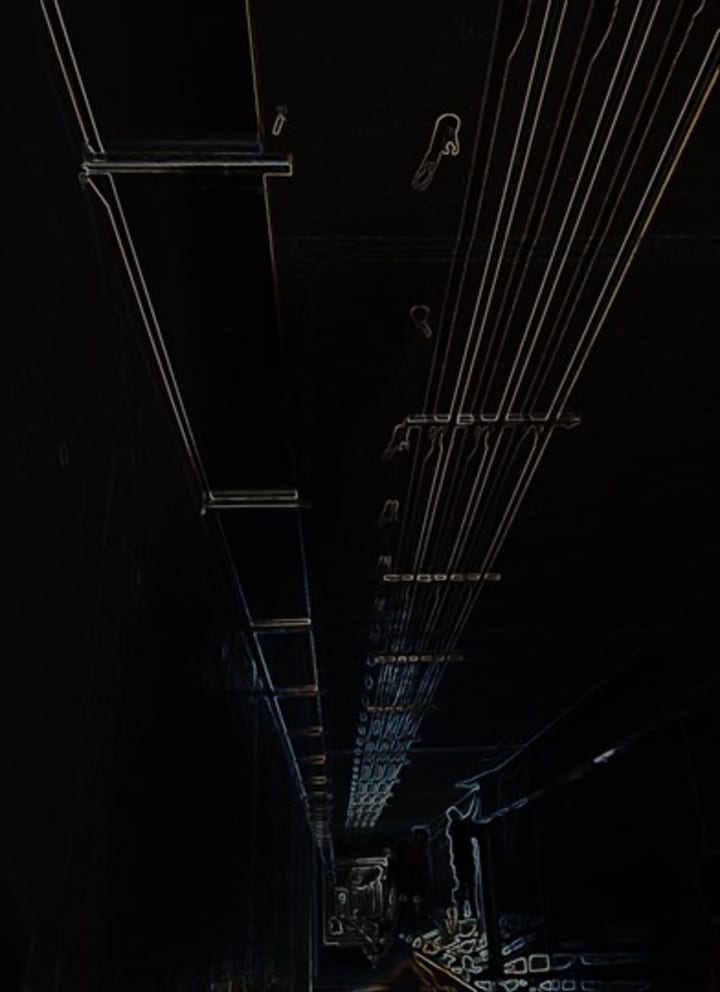
I opened a maintenance door to the underground telecommunications and found data cables as wide as me that twisted around each other. This must have been the artery feeding the Mayoral tunnel. Each braid was coated with a protective polymer, but I could slide a shard of broken glass underneath and access the delicate golden channel within. I opened the braids and lined them up, ready to blast, and heard footsteps along the tunnel.
“Are you the one SecFor is looking for?” the voice asked.
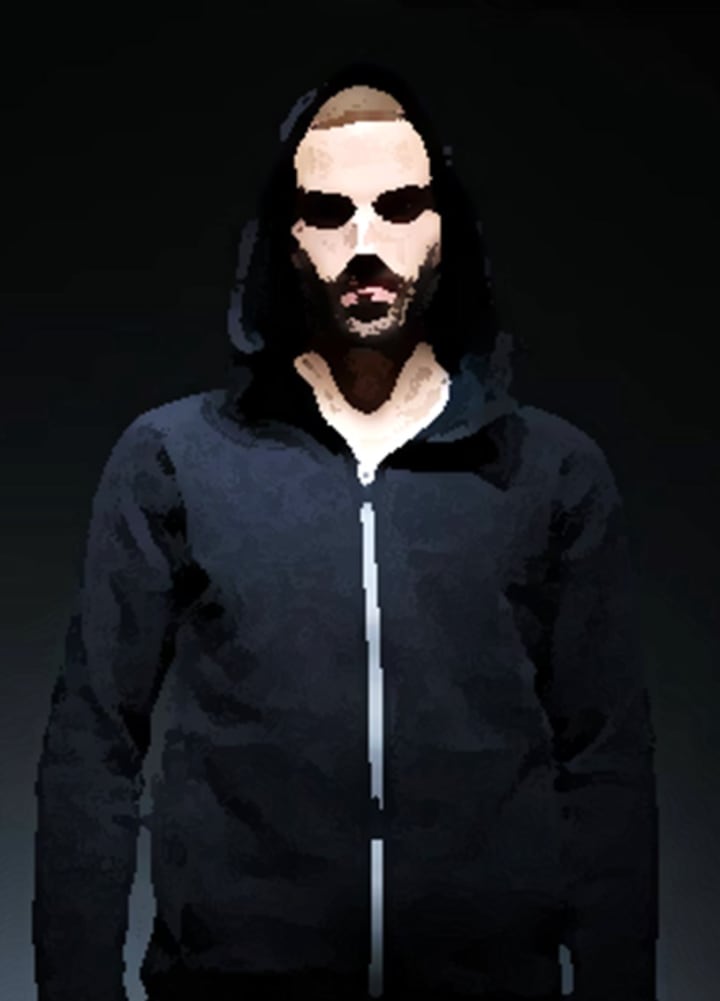
I looked over my shoulder and saw the blond in a black jumpsuit addressing me. If they were a threat to me, I would already be dead. I fried the cables and smelled the plating melt inside the polymer shells.
“How did you do that?” the voice asked.
I dropped the cords. I could lose the stranger in the pipes if he lacked a bioluminescent skin patch, but I couldn’t have them telling SecFor where I was. I could try to lie, but I was a terrible liar no matter how many artificial components I put in my face.
“I’m a rebel,” I said.
“I had gathered that. Do you want help? I have half of the satellite locations memorized and can help you take them offline.”
We had not even considered taking the military satellites offline. If we took those down, the drones would be blind. With the cameras offline, the system would be blind. I felt my heart speed up against the catheter and took a breath to stabilize it. This was not part of the plan that we had made, and escalating or de-escalating the plan had to be thoroughly discussed.
“I’m Jolt,” the stranger said. “I’m a man. Mostly.”
He revealed his own transparent cybernetic arm filled with organic components in thick catheters. His hand contained a state-of-art multi-tool that would come in handy. I sighed and nodded to him before descending into the lead pipes again.
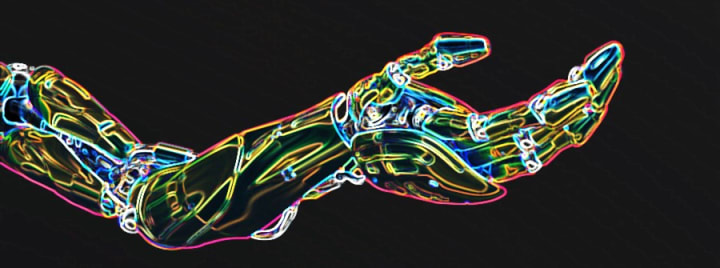
At the next cross-section, I found newer data cables tangled for miles. Some had already broken over time, but others still felt hot from overuse. I cut through them and felt Jolt close behind me.
“Are you going to do it again?” he asked.
I hesitated before frying the data cords. They melted together through the polymer coats and hung limp from the plastic above. Jolt watched with a slack jaw. He did the same when we reached the next intersection and the next, frying another data center and fiber network. Before we left the next telecommunications center, Jolt stopped and entered a manual override with his multi-tool.
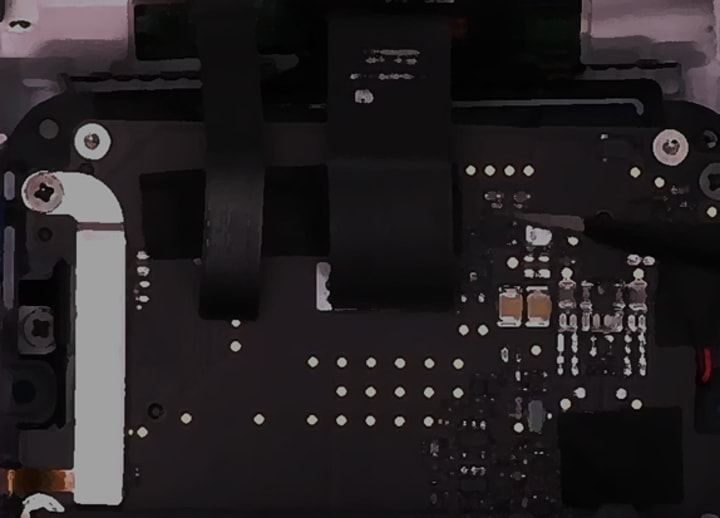
“I’d love to be able to do what you do,” he said. I ignored him and watched for creepers, the spider bots that SecFor used to patrol their mains. The creepers likely had already caught Sparrow and Kat. “You know, when you take the system down, you take the entire system down.”
I sighed. Every rebel knew this guilt. The system that kept 50 million people in poverty and turned the water and power off in the slums was the same system that kept those same people alive in its health care units. Rebels were never one organization, but in general, we agreed that people were not meant to live like this. We had to destroy this system and build a new one that served the people.
Jolt closed the panel. “That’s five satellites, but I hit a security protocol. Let’s hit the next box instead.”
I gritted my teeth. “You don’t need me. I’ll be here.”
“Watch my back.” His eyes pierced like daggers under his furrowed brow.
He could trip the alarm with that panel if he wanted to. I looked up and down and listened for creepers before nodding. Four-hundred feet down was another panel, but it had been fried. We found another fresh box.
“You could let this be a message and scare them. You don’t have to destroy the hospitals or residential areas,” he said.
I saw how he punched the coordinates, but he was pressing a separate red button as well. It was the security override. I reacted - without thought - and shoved him. Then I smelled cooked meat again. Jolt was silent, but his finger was still in the alarm button. His eyes had melted. I had-
His body collapsed into the panel. I ran and hid in the pipes before the skittering of creepers filled the tunnels above. I had to save my friends. I couldn’t think of the man I had fried in my panic.
I had to save my friends and make every sacrifice worth it, so I walked the tunnels and fried every panel between me and the jails holding them. My only relief was the promise of seeing their faces under a blue sky without drones, but it was relief enough. I had to believe in the better tomorrow if I was going to make it through today. Just one more panel, one more sector, and we would be truly free.
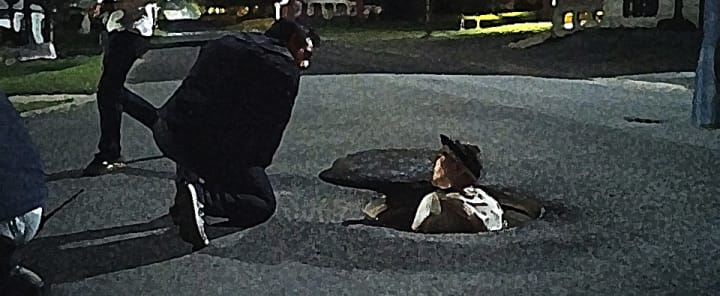
About the Creator
Barbara Force
By day, I am a research scientist investigating the genes behind impulsivity and addiction. I write about love, science, and the millenial experience.






Comments
There are no comments for this story
Be the first to respond and start the conversation.